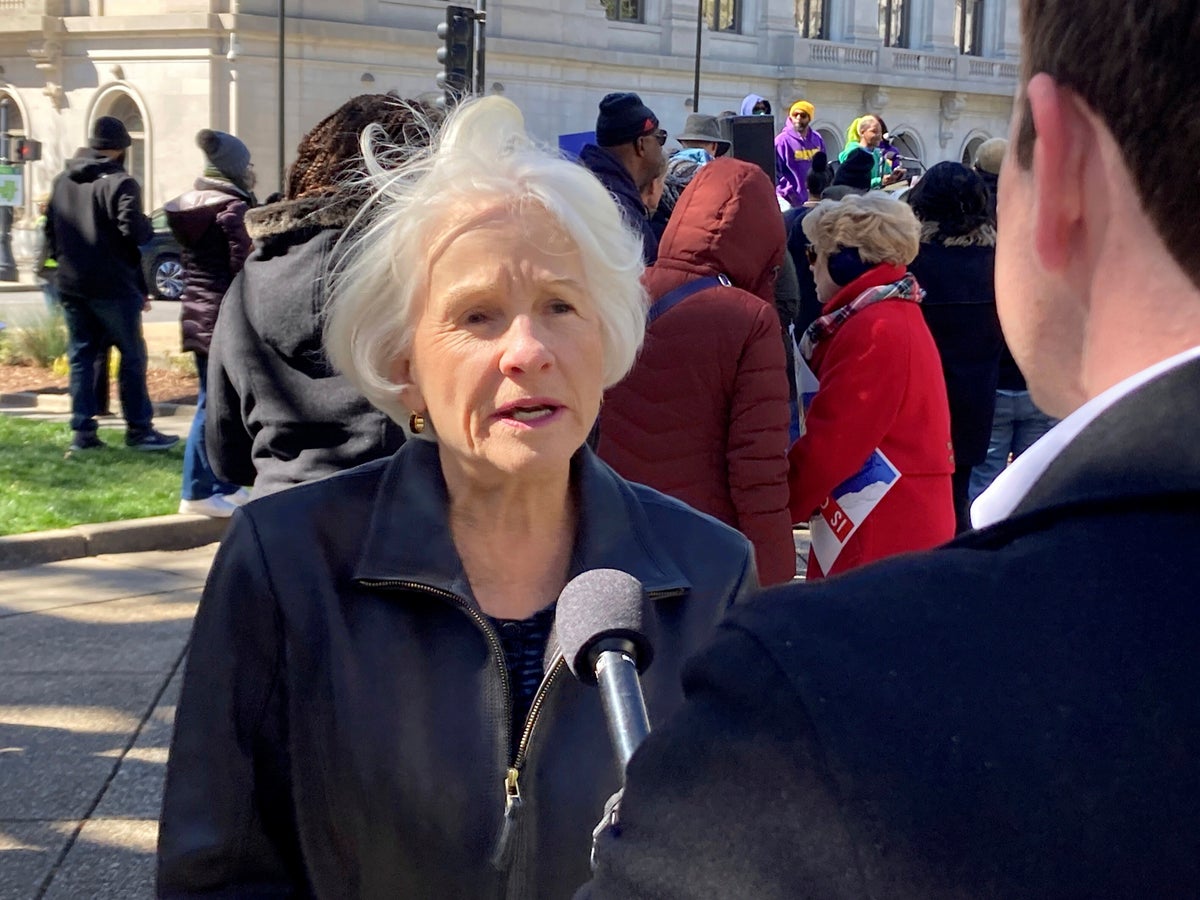
A newly formed and now Republican-majority North Carolina Supreme Court listened on Tuesday to arguments that could determine the extent to which state legislators can create electoral districts that could help lock in their political power.
The new 5-2 GOP majority allowed a rare “rehearing” of the case last month. The redistricting litigation was ruled on just three months ago, when Democrats held a 4-3 seat advantage. That edition of the court threw out out a state Senate map the legislature drew and upheld congressional boundaries drawn by trial judges.
That ruling stemmed from a landmark February 2022 decision declaring the state constitution barred partisan gerrymandering — especially when lines fail to give voters the ability to elect favored candidates commensurate with their level of voting power statewide. The Democratic-majority court pointed to evidence that showed maps approved by the General Assembly in fall 2021 made it nearly impossible for Democrats to win majorities in the legislature or in the congressional delegation, even though the state is marked by closely divided statewide elections.
The Republicans on the court at the time disagreed, saying the constitution doesn't address partisan considerations in redistricting, so such decisions are left solely to lawmakers. Since then, the court’s majority flipped to the GOP after two associate justice election victories in November. Republican legislative leaders asked for the rehearing, which the new court granted.
The arguments marked the first of two days of rehearings for the justices. The same Republican majority also ordered a hearing for Wednesday on another 4-3 decision in December that upheld a trial court decision striking down a 2018 voter photo identification law.
These rehearing decisions have angered Democrats and their allies, who sued in both cases and claim they were based solely on the partisan makeup of the court. About 300 people attended a Tuesday morning rally Capitol Square across from the Supreme Court building before Tuesday’s arguments lamenting the rehearings and vowing to keep fighting for voters and marginalized groups.
“The law cannot swing back and forth with every election,” said Rebecca Harper, a Cary real estate agent and the lead plaintiff in the redistricting litigation who attended the rally. “I’m very very sad that we are back here fighting this same fight again because of what this court and this legislature are pushing for.”
There’s no timeline when the Supreme Court will rule.
A favorable decision for the GOP legislative leaders could give them an easier time to draw legislative and congressional maps for 2024 and beyond with more favorable partisan tilts. While Republicans current hold majorities in the General Assembly, the congressional delegation is split 7-7 after two more Democratic seat victories in November.
Harper is also involved in a related case at the U.S. Supreme Court, where oral arguments were held in December. Legislative Republicans asked the U.S. justices to declare that the state Supreme Court improperly tossed out the congressional districts the General Assembly drew. That’s based upon a theory that critics say could give state lawmakers expansive powers over how federal elections are conducted. The federal case could become moot if the state Supreme Court reinstates congressional lines the legislature drew.
Phil Strach, a lawyer for the GOP lawmakers, told the court on Tuesday that the 2022 decisions show that state courts lack the ability to calculate and determine what are considered politically fair maps.
“Some things, your honor, are beyond the power of this court," Strach told Associate Justice Anita Earls, a registered Democrat. “This court does not have the power to address that issue is because it does not have the tools to answer the question.”
Earls cited evidence by a trial court last year from mathematicians that found the 2021 maps the General Assembly approved were more carefully crafted for Republican advantage than at least 99.9% — and in some cases 99.9999% — of all possible alternatives.
“And so you’re asking us to say that in spite of those facts, this North Carolina Constitution offers no protection to voters?” Earls asked. Strach said later that some actions are beyond other political branches to address, and that “sometimes it’s got to be left up to the people.”
"Except how can it be left up to the people" when maps don't reflect the voting strength of the public, Earls responded.
Attorneys for the voters and advocacy groups that initially sued over the maps said in legal briefs that the facts in the cases haven't changed — only the combination of justices have— and so the redistricting decisions should be left intact.
The Supreme Court didn't give specifics for why they agreed to rehearings. But they can be granted based on arguments that the justices “overlooked or misapprehended” facts or laws.
“Now the legislative defendants play a cynical game, hoping that this newly constituted court will reverse course and abdicate its fundamental duty of judicial review,” said Lali Madduri, an attorney speaking Tuesday in court for Common Cause, the North Carolina League of Conservation Voters and citizens like Harper.







